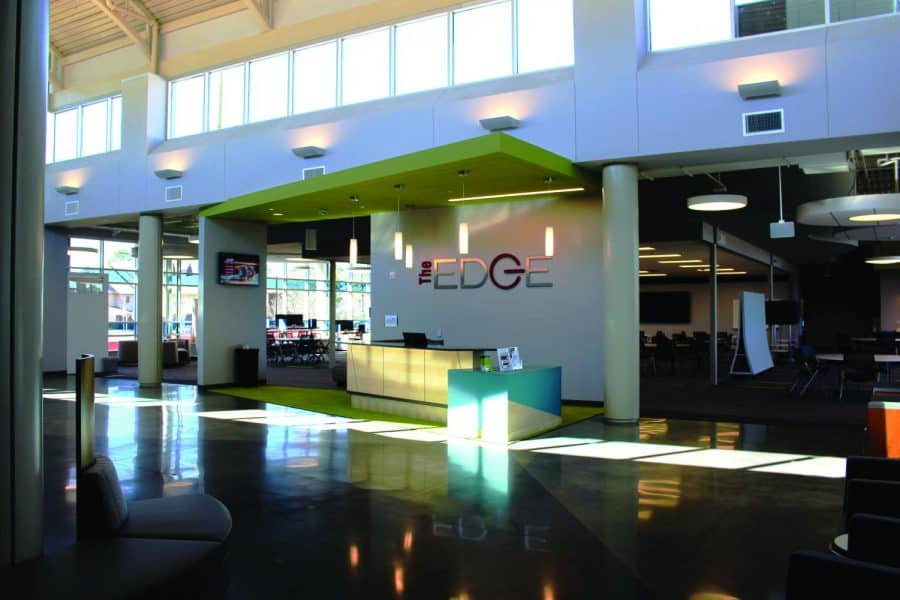New partnership offers more resources for UA entrepreneurs
August 19, 2019
This summer, the University forged a new partnership between two local incubators in order to better align resources for students, faculty and community members.
Formerly known as the Bama Technology Incubator, a laboratory housed inside the AIME building on campus, the newly named EDGE Labs will be partnering with The Edge on 10th Avenue, a coworking space designed to foster innovation in Tuscaloosa.
The 23,600-square-foot facility on 10th Avenue was opened in February as part of a partnership between the University (specifically the Alabama Entrepreneurship Institute, which is managed in the Culverhouse College of Business), the City of Tuscaloosa and the Chamber of Commerce and will remain a coworking space for innovators on and off campus. Meanwhile, EDGE Labs on campus will continue to feature a wet lab for entrepreneurs working with chemicals or testing products.
Russ Mumper, the vice president of research and economic development, said the partnership was consistent with a five-year strategic plan for his department as well as the University’s recent five-year strategic goals. Bridging the on-campus incubator and the local facility, he said, was meant to create an alignment of strategy and philosophy “to achieve something bigger than one can achieve by itself.”
Theresa Welbourne runs the Alabama Entrepreneurship Institute and has been at the University for three years after running similar programs at other universities.
“If you look at what we’re all trying to do, it’s to grow businesses and to add jobs to the local economy,” Welbourne said, noting that Mumper had the idea to leverage resources so that all the facilities could work together. “This [partnership] was about rethinking what they were doing at the wet labs and taking advantage of this newly formed building and all the people that are supporting it so that we can come together and work together and put our calendars together and really show people in the University how … they can plug in and build their businesses.”
Since its opening, The EDGE has boasted about 50 employees and has hosted over 80 events. Currently about 20 businesses are running out of the facility. According to Robert Morgan, director of the STEM to MBA program, BTI (now EDGE Labs) saw five student businesses incorporate it in the last three years.
“One of those, OrthoScrews, has gone through the NSF I-Corps national cohort program, and they are currently applying for SBIR funding,” Morgan said in an email, noting that two of its three owners are now in medical school and that another has just begun a kickstarter campaign.
Mumper said the University’s intellectual property policies will still apply to both labs, but students who create a product with EDGE services for academic purposes will have complete ownership of their creations. For faculty who are considered “work for hire,” the policy requires that the inventor share a 42.5% royalty with the University if a product created in its facilities is later commercialized.
Jackson Dean, a senior majoring in business management, used the facilities at The EDGE on 10th Avenue to survey companies for Executive LIFT, a program that facilitates service opportunities for business students.
“It’s like something out of a Hallmark movie where people work in New York or something,” he said. “It’s pretty cool.”
He said the new partnership would encourage more students to use the facilities available to them.
“There’s this gap that needs to be bridged, because a lot of students, especially if you’re not from Alabama, they don’t really have as much of a connection to the community, and so they mainly stay on campus, whereas the community is pretty separate,” he said. “[The partnership] would be a really great opportunity to get students to work with a company that will improve the community.”
Welbourne said the new partnership could also work to help keep young entrepreneurs, like Dean, in the state.
“They are likely to want to stay here because they’re getting to know people who can help them,” she said. “If you don’t have that experience, it’s harder to want to stay in Tuscaloosa because you don’t know people outside of students.”








